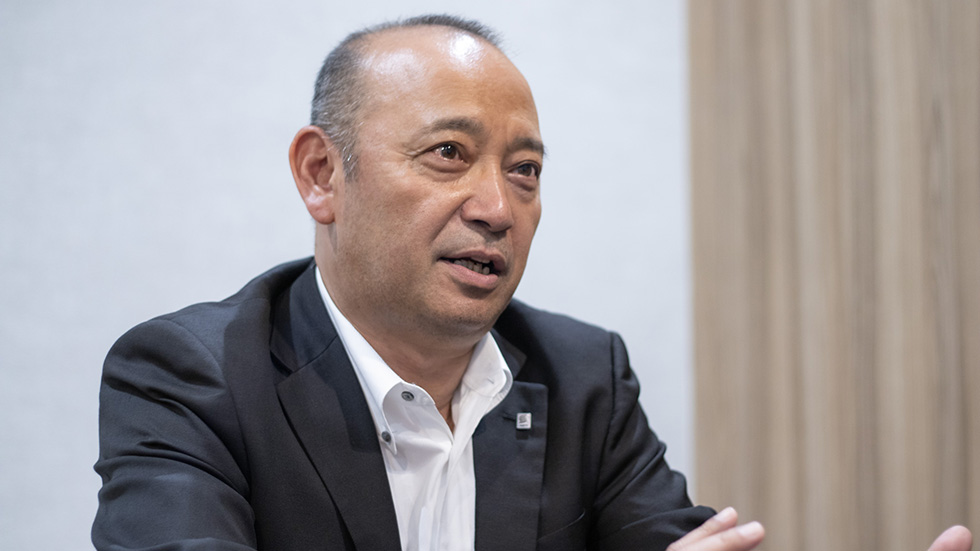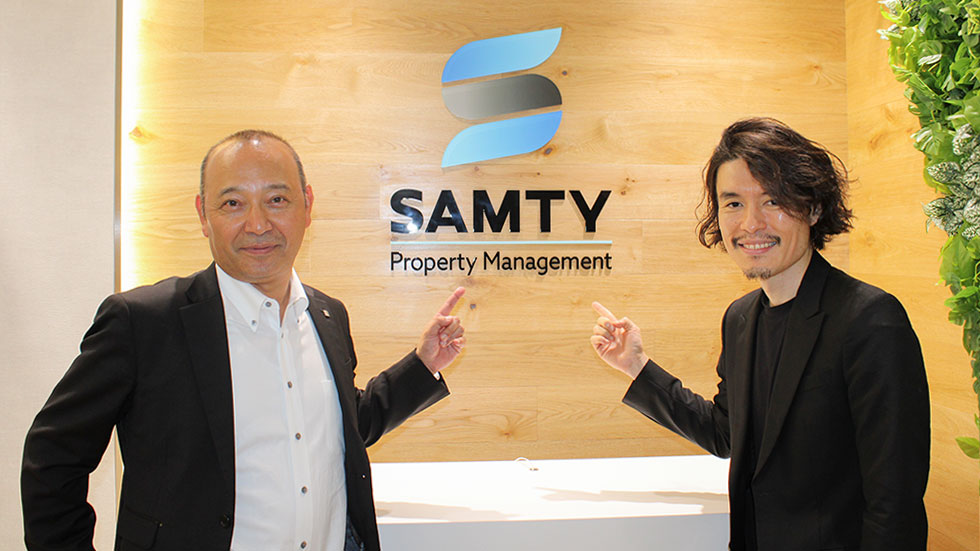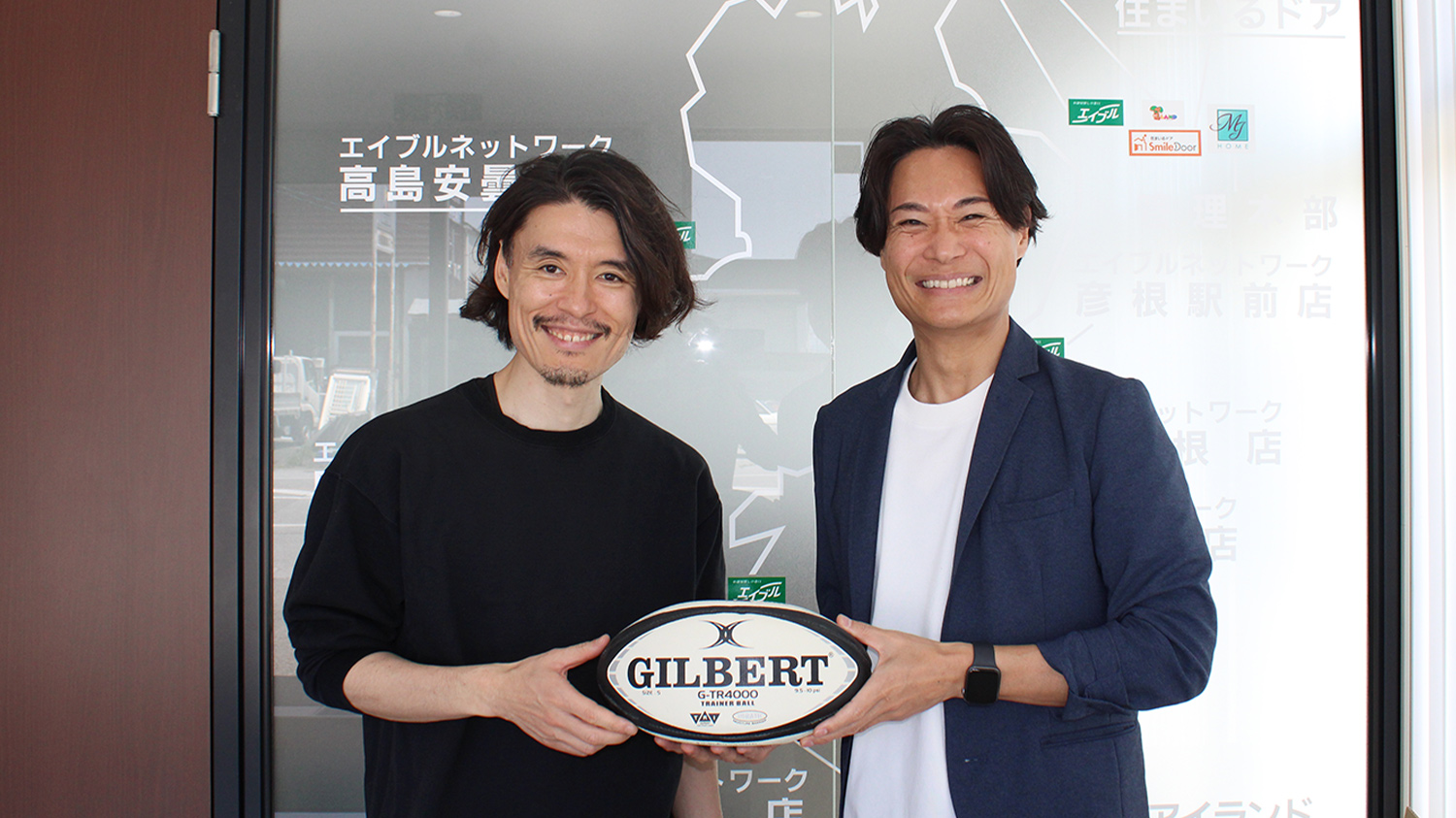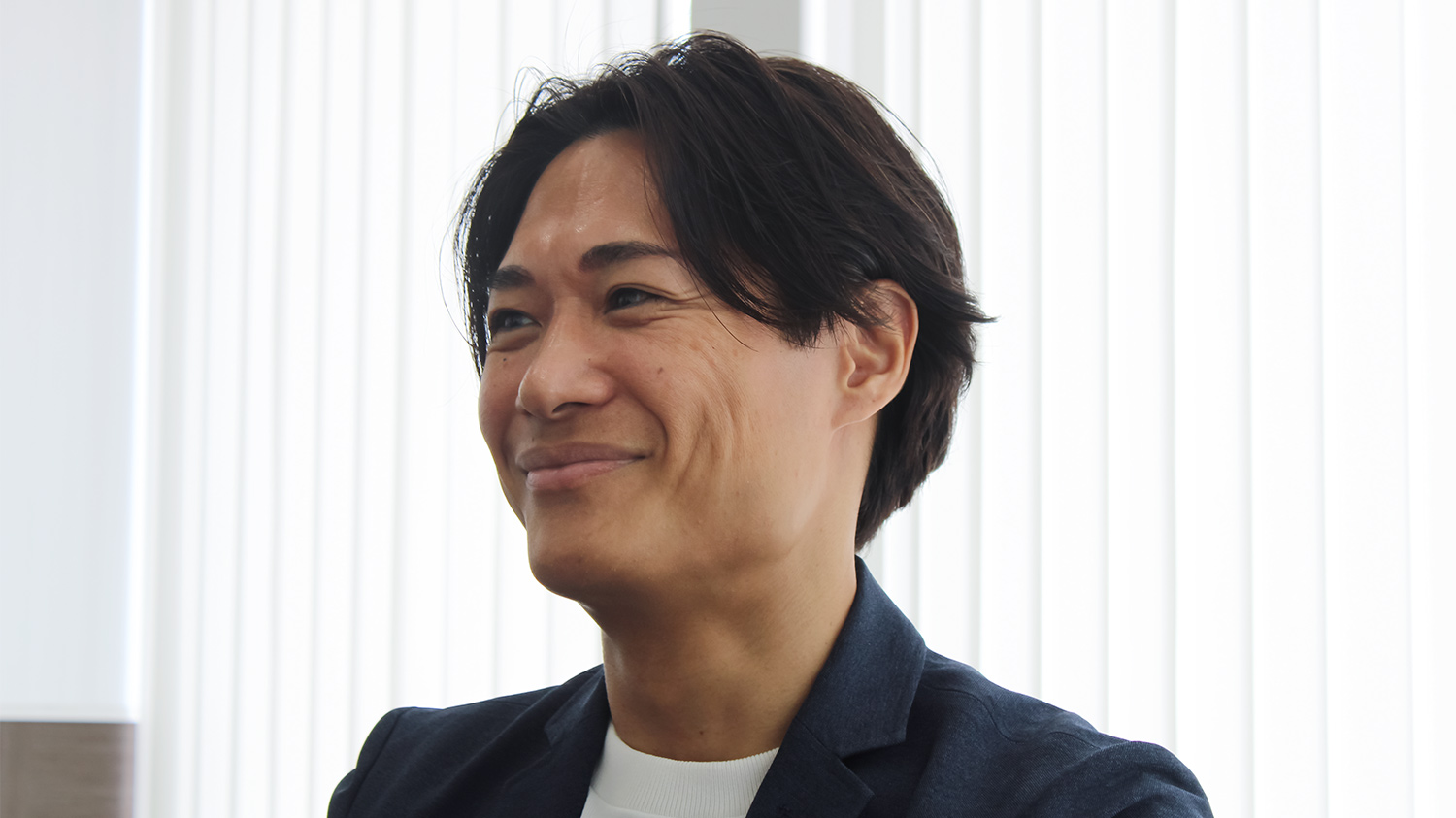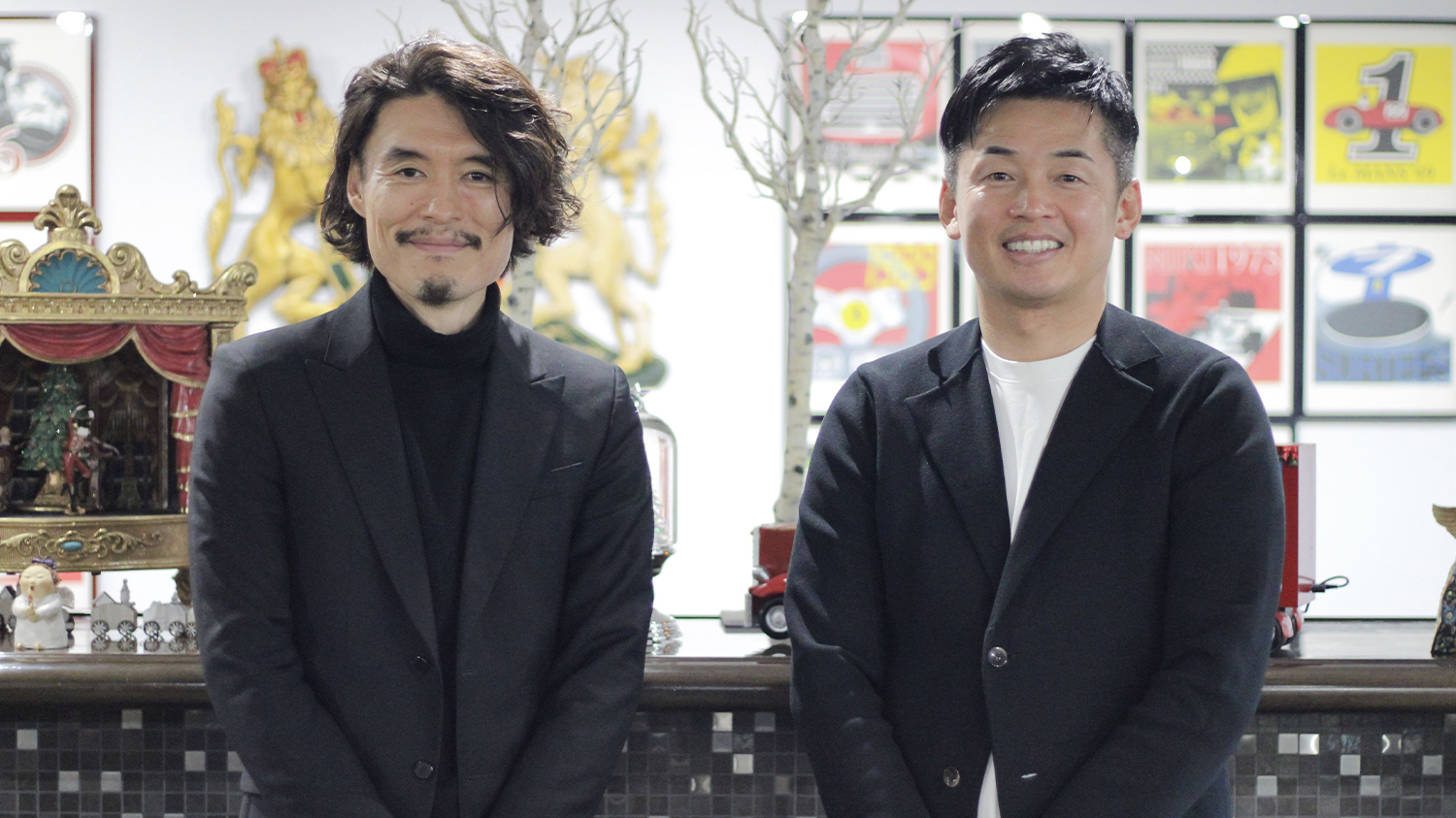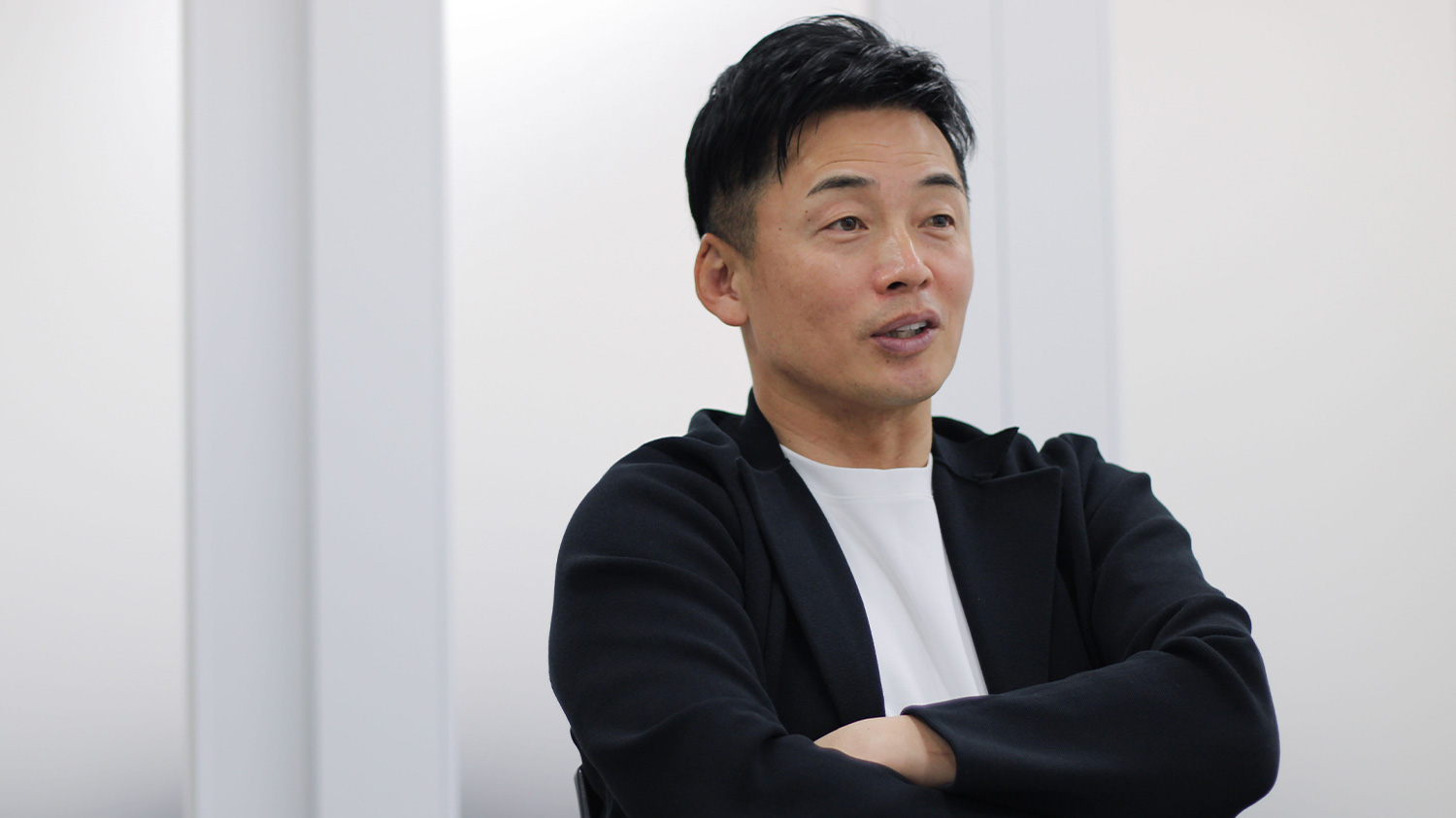2022.04.26
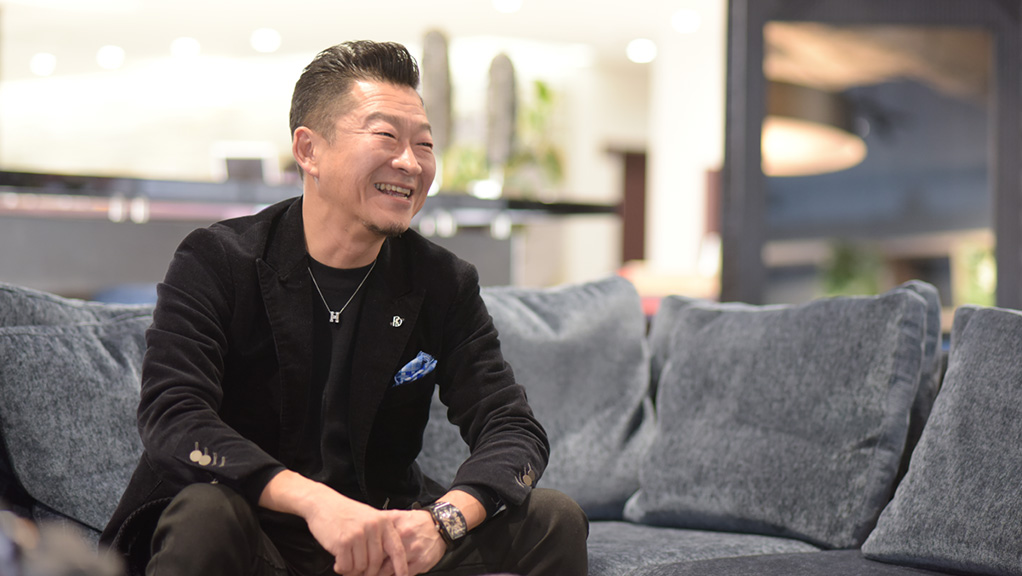
A series project themed "Understanding the Current State of Real Estate Management Companies" where we invite leading guests from the industry to hear their valuable insights. In the 13th installment, we spoke with Mr. Yutaka Hirota, the representative director of Hirota Holdings Co., Ltd., which aims to provide one-stop high-level real estate solutions sought by local businesses and asset owners based in Kitakyushu City, Fukuoka Prefecture. In the first part, we discussed Mr. Hirota's past until he joined the family business, the real estate department store Hirota, his thoughts on turning a "family business" into a "corporation," and his views on leadership. (Part 1/2)
Guest Profile
Hirota Holdings Co., Ltd. Representative Director Yutaka Hirota graduated from Kyushu International University, Faculty of International Business. After joining Sekisui House, Ltd., he engaged in residential sales for 4 years, then joined the company founded by his father, Chairman Masato, in 1999. He became president in December 2010. His hobbies are running and golf.
Table of Contents
With the opportunity of studying abroad, I became aware of the world. I wanted to do something on a large scale, so I joined a major housing manufacturer as a new graduate.
――First, let me ask about President Hirota himself. If you could also tell us about your past before returning to the family business.
I was born and raised in Kitakyushu, and to put it simply, I was a "mischievous boy" (laughs). My parents started a real estate business during my childhood, and supported by the period of rapid economic growth, the business was doing well, so I may have been spoiled while growing up. My turning point came during my university years when I studied abroad. I enrolled in a local university, but at my parents' suggestion, I took a leave of absence in my third year and spent my student life in California. Until then, my life had been completed in Kitakyushu where I was born and raised, so this experience was significant. I met people from various nationalities and backgrounds, and I began to look at the world with the desire to get closer to their perspectives. After that, I joined Sekisui House as a new graduate.

――I see. Was studying abroad and joining a major housing manufacturer as a new graduate a choice made with the prospect of taking over the family business in mind?
No, that's not the case. Perhaps because my parents understood the hardships of being a merchant well, they never spoke about succession, and I grew up without being too conscious of it myself. My joining Sekisui House was not positioned as training; rather, it was a serious exploration of how to get closer to the world's standards, and I decided to join because of the scale of the business.
What I aimed for after joining Sekisui House was to become the top. If I didn't become number one, my opinions wouldn't be heard, so I aimed high. However, during the first six months, I was a poor performer. Even though I did door-to-door sales as taught in the new employee training, I continued to be in a situation where I couldn't produce results. At that time, my boss asked me, "When will you get your first contract?" and embarrassingly, I asked a senior, "When will I get my first contract?" Naturally, I was told, "That's up to you," and at that moment, I was able to switch my mindset. When I told my boss that I wanted to proceed with my own ideas instead of door-to-door sales, he said, "I was waiting for that word," and for the next four years until I left, I practiced what I had thought of every day. I continued to run with almost the top sales performance.
What is important is to think for yourself, take action, and achieve results
――The foundation of President Hirota's ability to think and act on his own was indeed formed during his time as a new employee.
私の原点であり、ターニングポイントですね。上司や先輩、会社のやり方に依存するのではなく、自分で考えて成果を出していく大切さに気づけたことが、成長につながりました。このエピソードは今でも弊社の若手社員によく話すんですよ。標準的な意見や人真似でなんとかしようとするのではなく、自分の頭で考えて行動することが重要なんだよと。このように社内で自主性を推奨しているおかげで、弊社の社員は自発的に動いてくれるタイプが多いですね。

――ご自身の新入社員時代の学びが個人を超えて、今では組織の中で生きているということが素晴らしいですね。新卒から4年、順調にキャリアを積まれていたタイミングで家業にチャレンジの場を移されたのは、きっかけがあったのでしょうか。
There are several triggers, but one was the death of my grandmother, and then an employee in a key position left, which led my parents to consider closing the business. My parents said, "We want you to sort out your feelings about whether you intend to take over or not," and I began to seriously think about succession. At the same time, I felt a dilemma about only being able to sell our own properties at Sekisui House. Since in real estate, I could handle monthly parking lots, houses, and buildings, the family business started to look attractive. On the other hand, working at Sekisui House made me realize that organizations survive through the development and growth of their human resources, and I recognized the necessity of incorporating the organizational strength of publicly traded companies into the real estate industry. At that time, the real estate industry had many small real estate agencies and individual brokers, and while construction companies were going bankrupt, housing manufacturers remained, indicating that the monopolization of the construction industry would eventually reach the real estate industry as well. At that time, our company had about 20 employees, and I thought it would be interesting to dedicate my life to transforming the "family business" into a "corporation" while there was still an opportunity, and to change the common sense of organization in the real estate industry. With these complex triggers, I made the decision to take over.
To turn the "family business" into a "corporation," implement a system that gives depth to the organization
――I see. You returned with the mission of turning your "family business" into a "corporation." I have deepened my understanding that such thinking has led to the current robust organizational system of your company.
To organize for becoming a "corporation," it is important to capture the elements of "increasing the total number," "developing people," and "organizing departmental structure" in 3D. What I have been thinking about since returning to the family business 20 years ago is that simply increasing the number of people in the organization is meaningless; it is also necessary to enhance the middle management layer. For example, for department heads and section managers, in addition to rental experience, experience in customer negotiations such as delinquency collection and complaint handling is also required. Therefore, alongside the overall increase in personnel, we created various departments and positions, and utilized a job rotation system to increase the number of personnel with a wide range of work experience.

――In 2020, we became a holding company and achieved growth as a 'corporation' with 160 members, which is the result of a vision from 20 years ago. To better understand your organizational strength, could you please tell me again about your business activities?
Our main business is rental brokerage, rental management, and sales brokerage. Currently, we have seen an increase in real estate-related businesses derived from our main business, such as real estate solutions and coin parking, and departments with personnel have been specialized. There are departments with 2 to 3 members, as well as departments with around 60 members, like rental brokerage.
The advancement of specialization and division of labor is leading to the organization being captured in 3D. By specializing and dividing labor, it becomes easier to consolidate skills and also easier to acquire them. By regularly moving people through job rotation, growth is promoted, and as a result, the number of people who can perform advanced work increases. Our strength lies in the system that ensures fair evaluation regardless of which department one joins, allowing for balanced growth.
What a leader should do is to show the future to the employees who support the company
――I understood that your company's business structure is also connected to human resource development. It is impressive that you have consistently practiced the advanced approach of capturing organizational strength in 3D for the past 20 years.
I believe that it is the president's job to foresee what the company will be like in 5 or 10 years. If the top of the company cannot see the future or does not have the will to create a certain future, the employees will not be able to follow. What a leader should do is to show the future to the employees who support the company. And I think it is also important to make them feel that future with a sense of reality. Five years ago, when we moved to the current office, the employees seemed to think internally, "What will happen after moving to such a large place?" (laughs). Still, I kept saying, "It will definitely fit our size," and in fact, we increased both the number of businesses and the number of employees. In this way, continuing to paint the future I want to take them to is what I should do.

――The shape of the organization that President Hirota wants to create is embedded in various places in your office, isn't it? The space that opens up when employees come down the stairs from the third-floor office is designed as a 'stage.' It conveys the message that the office should be a shining stage and a place that employees can be proud of. Personally, I am also interested, but as the organization gains depth, a distance can develop between the president and the employees, right? How have you been innovating in that regard?
Efforts to give depth to the organization have been practiced for 20 years, but until just 10 years ago, I attended all meetings and pointed out detailed numbers. Now, with more employees I can entrust tasks to, we were able to delegate authority to all departments in the last mid-year summary meeting. I felt it had become easier for me (laughs). While there may indeed be aspects where I feel a distance from employees because of this, it is like a necessary separation. We can also create opportunities to bridge the distance in areas outside of the entrusted tasks. Before COVID, I consciously and regularly took employees out for meals or invited them to my home to hold 'boss home parties' to create a sense of unity. It would be good if we could close the distance when it really matters.
When I returned to the family business, the number of employees, which was around 20, has increased to 50, then 100, and now it is 160. When there were 20 people, we used to have meals together almost every month, but with 160 people, that's not possible. As the number of people increases, the way we can do things also changes, so I make an effort to redesign the way we communicate in a timely and appropriate manner.

Interviewer: WealthPark Founder & CEO Ryuta Kawada
HIROTA Holdings Inc.
Representative Director Hirota Yutaka 1-11-1 Sanno, Yahatanishi-ku, Kitakyushu City
Company Homepage:https://corporate.re-hirota.co.jp
<Contact for this matter>
Hirota Holdings Co., Ltd.
Representative email address: [email protected]
Representative phone number: 093-663-3934
WealthPark Inc. Public Relations Mail:[email protected]
Special Talk Project (Part 1) A single transaction changed destiny. Learning from the life of President Ueda of Samty Property Management: "The Ideal Image of a Management Company Representative"
Special Talk Project (Part 2) A single transaction changed destiny. Learning from the life of President Ueda of Samty Property Management: "The Ideal Image of a Management Company Representative"
Special Talk Project (Part 2) Strategically and Stoically. What are the secrets to continuously challenging oneself, as asked to President Katsukawa, who is active in his hometown of Nagahama?
Special Talk Project (Part 1) Strategically and Stoically. What are the secrets to continuously challenging oneself, as asked to President Katsukawa, who is active in his hometown of Nagahama?
Special Talk Project (Part 2) "From Free to Paid Management" The Real Estate Struggle Story Told by Yoshikazu House, a Pioneer of Management in Hiroshima
Special Talk Project (Part 1) "From Free to Paid Management" The representative of Ryozawa House, a pioneer in management in Hiroshima, talks about the struggles in real estate.
